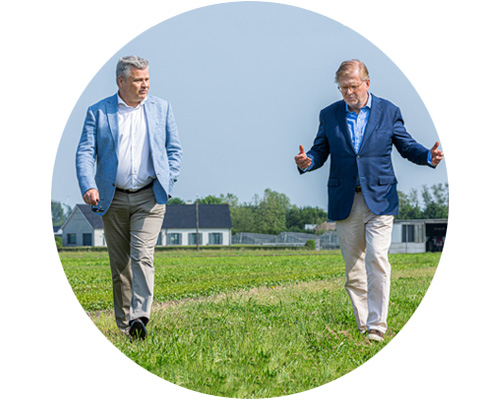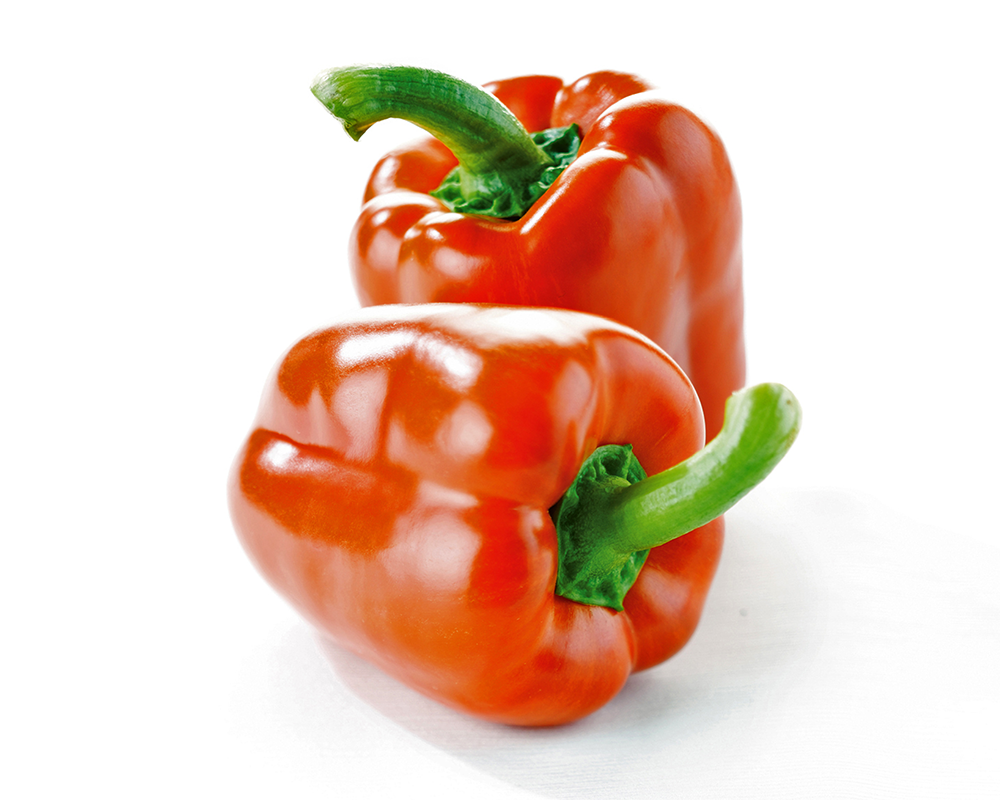

The world around us looks completely different compared to our last Sustainability Report. This past year confronted us, more than ever before, with the interconnectivity of global food supply chains and the need for stable, yet agile responses to everyday challenges. The dry and hot summer period puts another exclamation mark on the vulnerability of our planet. There is an urgent need for climate adaptation measures and for climate action. Additionally, our industry is facing an explosion of costs in energy, transport, and packaging. At the same time, we must cope with volatile prices for fruit and vegetables.
With Greenyard, it is our priority to be a part of the solution, for all our stakeholders: growers, customers, suppliers, employees, business partners and shareholders. But most of all, for our most important partner: nature. Nature always is the starting point of our value chain, we cannot do without it and, we need to nourish it. Therefore, we do not compromise when it comes to sustainability. On the contrary, we further accelerate. Also in the current challenging economic environment, we have taken major steps forward.
Sustainability has taken centre-stage in our Strategy 2030, which we introduced at the end of 2021. It is a driving force for our strategy, that has a clear ambition: to improve life through plant-based food experiences, connecting healthy lifestyles and sustainable food value chains. We embrace our responsibility and see it as our duty to lead the way in the global transition to healthier and more sustainable food systems. We are committed to make it easier for consumers to make the right choices by broadening our plant-based portfolio of convenience products.
Plant-based is the future
Fruit and vegetables – the plants themselves – are our core products, in all their pure and natural power. For Greenyard, that is the only way to look at plant-based. We believe in fruit and vegetables as the centre of the plate, where they belong based on their own merits. Because fruit and vegetables are the healthiest and the most sustainable choice. Undeniably. And every day, it is becoming increasingly clear we must make fundamental changes in the way we produce, and consume, food. Current food systems jeopardise the planet and, at the same time, they have a significant impact on our health. All around the world, we are confronted with a steep rise in non-communicable diseases, which is often linked to modern unhealthy lifestyles.
By simply making fruit and vegetables the main part of our diet, we can reduce our environmental footprint significantly and live healthier lives. Growing our business, together with our customers, will make it easier for consumers to make these right choices. Broadening our plant-based portfolio of convenience products will offer them a wide variety of healthy and tasty options. Because the healthy and sustainable choice, should be the easy one, always.
Also today, when consumers are impacted by the rising costs of living. The current reality highlights another important element in Greenyard’s strategy: we strongly believe that healthy food should be affordable and always accessible, for every consumer. Because if we want to have maximum impact, and enable true change, we need to reach everyone with healthy solutions. Accessibility throughout society, is key. At the same time, we must ensure a sustainable return, and fair value, for all stakeholders in the chain. Our relentless focus on close collaborations is an essential driver in realising this. Our Integrated Customer Relationship model provides an open and transparent dialogue. At the same time, we apply the same approach with our strong network of growers, through Integrated Grower Relationships. By connecting both ends of the chain, we aim to make each other stronger, and provide certainty, especially in uncertain times.

Fact-based decision-making
Ever since Greenyard was established, sustainability has been at the heart of our business. It is deeply embedded in our way of working and our fork-to-field approach. Building on this solid basis, we have now taken the necessary steps to create a fact-based fundament for our sustainability efforts.
On 1st April of this year, we introduced a new internal management system to monitor our key sustainability indicators and follow up on our progress. The system enables us to capture the most relevant sustainability data for every location each month. It supports our management to analyse, adjust and steer operations in the right – and ever more sustainable – direction.
At the beginning of 2022, we also conducted a double materiality assessment, an important milestone in the roll-out of our sustainability roadmap. Together with different stakeholder groups we plotted the material sustainability topics that matter most from a financial, a societal and an environmental point of view. The outside-in and the inside-out views of this assessment confirmed the priorities identified in our sustainability roadmap. Additionally, we instructed our external auditor to conduct a limited assurance on our sustainability metrics, which we included in this report. It puts us ahead of upcoming regulation like the new CSRD (EU Corporate Sustainability Reporting Directive) and it offers an extra level of transparency.
Another important topic for our sector will be the upcoming EU Corporate Sustainability Due Diligence Directive. It aims at ensuring human rights throughout the value chain on the one hand and the protection of the environment on the other. These topics are high on Greenyard’s agenda. We have strong ambitions with regards to social compliance certification for our growers in high and medium risk countries, and we issued a new Supplier Code of Conduct earlier this year to set the mark. Both are in line with this upcoming regulation.
And these steps are necessary. They help our company, and the industry in general, to further progress along the right path of sustainable food value chains. This is also why we unconditionally welcome new regulation in these domains; they create a level playing field for all companies regardless of their size, and they give extra credit to the front runners on these important topics. As an industry leader we will take our responsibility in supporting the set-up of such systems.
Key enablers for future growth
Innovation and technology go hand in hand with sustainability. They are key enablers. Not only to accelerate the transition towards plant-based diets, also to further drive progress in our sustainability strategy. Combined, they are vital in our continued long-term growth.

While managing the food supply chain, we connect a huge amount of insightful data points, starting at the grower’s side and moving along the entire chain. Right up to the level of end-consumers. Our close and integrated collaborations with retailers and growers enable us to match demand and supply in an unparalleled and extremely advanced way. Sustainability is a licence to operate, but it is also interconnected with our unique business model. One cannot go without the other. It is no coincidence that we see the lowest levels of food waste in our most advanced integrated customer relationships. It also provides us with a much higher level of transparency and a solid base for fair and correct pricing. As we embed sustainability in every decision we make, we experience how it directly contributes to economic value in our daily operations. Further-on in this report, you can discover more in-depth stories that illustrate this.
This dedicated Sustainability Report is an invitation to think with us on how we can “Improve Life” and further boost our sustainability and innovation ambitions. Because we can only do this together with all our stakeholders. It is a journey that will take time and will require investments. The cost to realise this major transition will need to be a shared effort if we are to create a heathier and more sustainable future for everyone.
But most of all, dear reader, it starts with any one of us. Every single individual can make a difference in their everyday life and contribute to a better future. Next time you ask yourself “what’s for dinner”, why not go for the healthy, sustainable, tasty, and plant-based option?